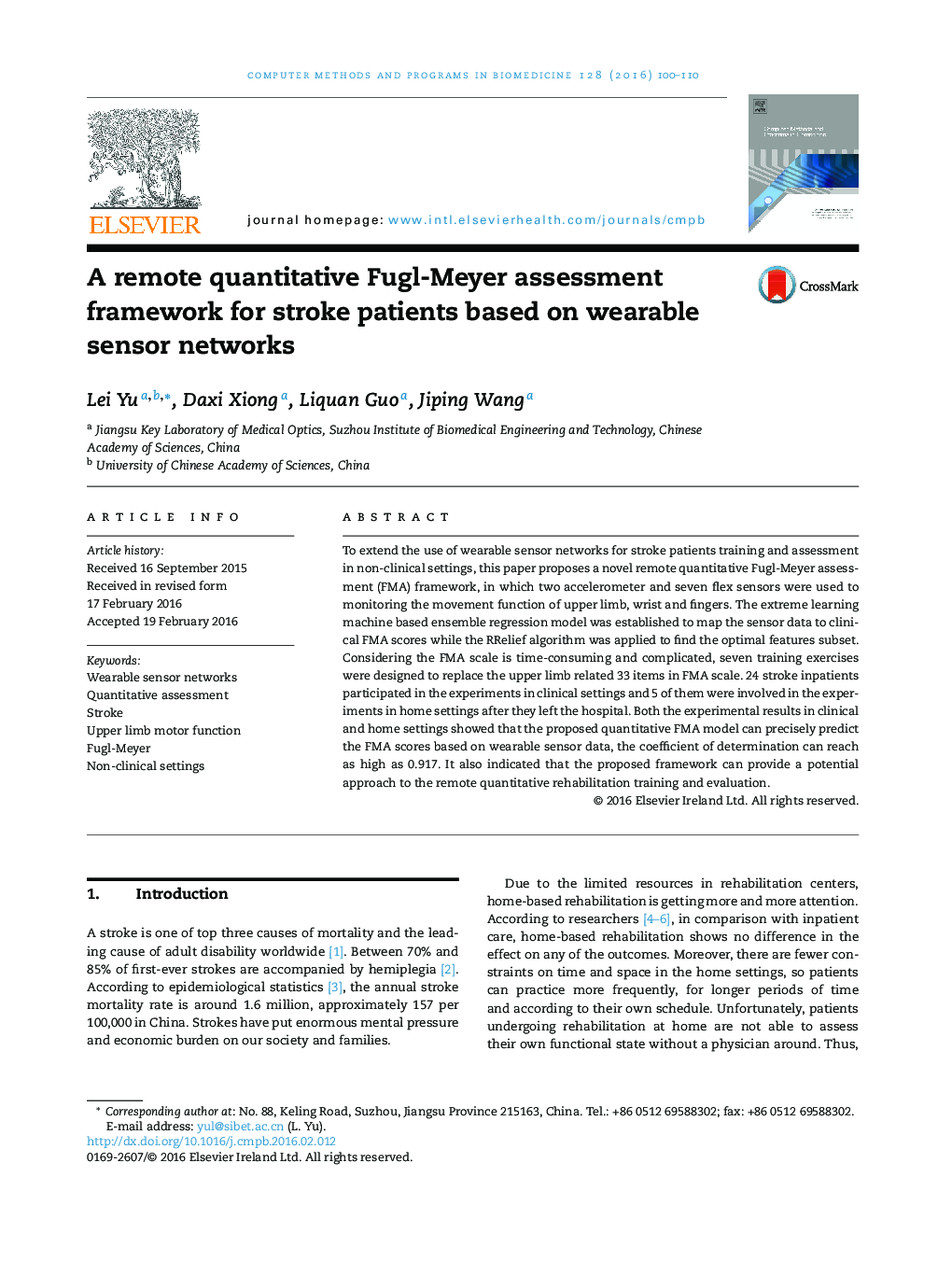| Article ID | Journal | Published Year | Pages | File Type |
|---|---|---|---|---|
| 469113 | Computer Methods and Programs in Biomedicine | 2016 | 11 Pages |
•A novel remote quantitative Fugl-Meyer assessment (FMA) framework was proposed for stroke patients.•Seven training exercises were designed to represent the upper limb related 33 items in FMA scale.•Ensemble machine learning and RRelief algorithm were applied to establish the quantitative assessment model.•The proposed framework has been implemented in both clinical and home settings.
To extend the use of wearable sensor networks for stroke patients training and assessment in non-clinical settings, this paper proposes a novel remote quantitative Fugl-Meyer assessment (FMA) framework, in which two accelerometer and seven flex sensors were used to monitoring the movement function of upper limb, wrist and fingers. The extreme learning machine based ensemble regression model was established to map the sensor data to clinical FMA scores while the RRelief algorithm was applied to find the optimal features subset. Considering the FMA scale is time-consuming and complicated, seven training exercises were designed to replace the upper limb related 33 items in FMA scale. 24 stroke inpatients participated in the experiments in clinical settings and 5 of them were involved in the experiments in home settings after they left the hospital. Both the experimental results in clinical and home settings showed that the proposed quantitative FMA model can precisely predict the FMA scores based on wearable sensor data, the coefficient of determination can reach as high as 0.917. It also indicated that the proposed framework can provide a potential approach to the remote quantitative rehabilitation training and evaluation.
